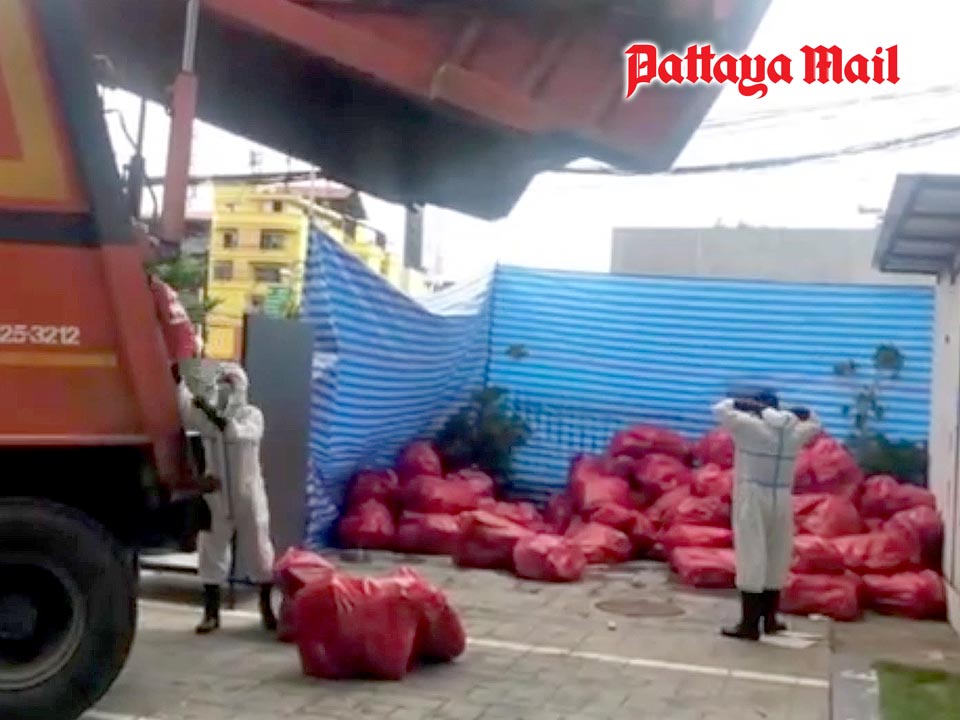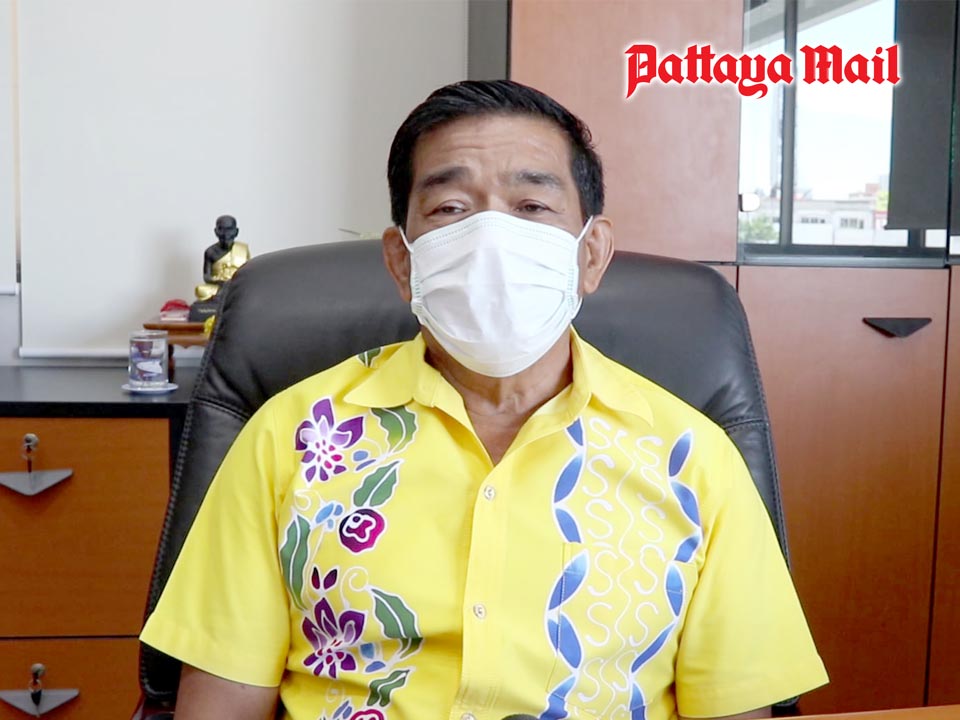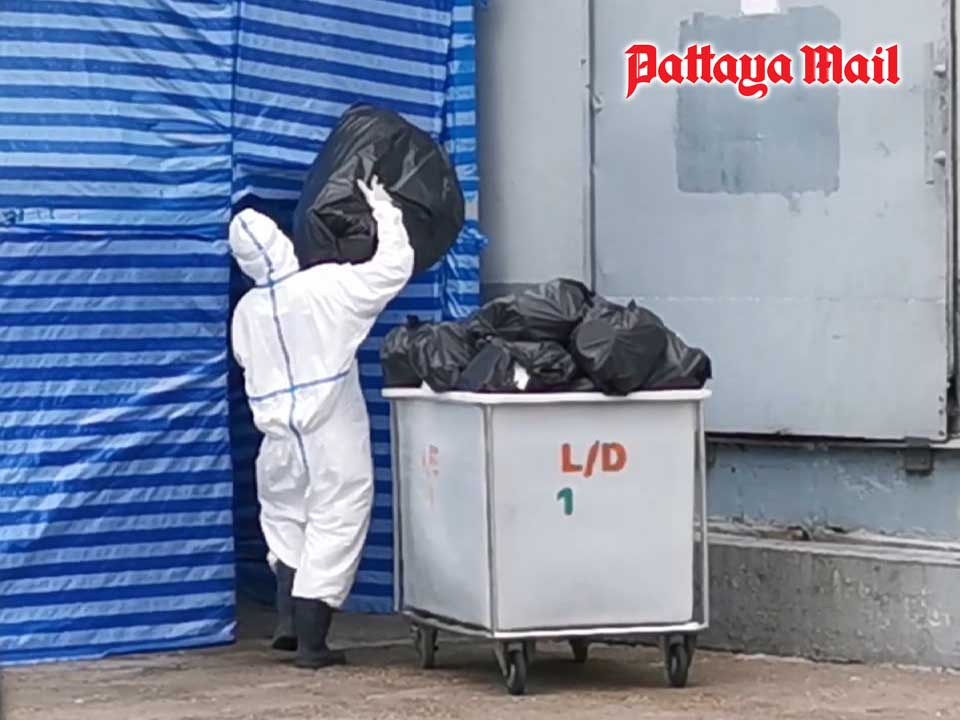
With nearly 20,000 Pattaya residents either in the hospital, ‘hospitels” or “home isolation”, the city’s hazardous waste problem is growing faster than coronavirus cases.
Deputy Mayor Manote Nongyai said Aug. 24 that more than seven tons a day of masks, personal protective gear, tissues and more-mundane garbage used by patients are now piling up. That compares with just 800 kilograms of hazmat trash before the coronavirus third wave exploded in Chonburi.
There are two major reasons for the pileup. The first is the number of people now under some form of medical care or quarantine: 18,942 in all of Chonburi as of Wednesday. The province also reported 974 new cases, including 147 in Banglamung District, which includes Pattaya.
The second reason is the zealous standard the government has used to classify something as “hazmat”. Basically, anything touched by a person who has tested positive for Covid-19 – whether they’re symptomatic or not – is required to be bagged in red plastic and specially handled and disposed of. That includes such mundane items as a bottle of hot sauce or a piece of paper.

The cost to dispose of those red bags is substantial. Pattaya’s garbage hauler, Eastern Green World Co., charges 1.5 baht per kilogram for normal trash. Infectious waste, however, costs 24 baht a kilogram to remove.
That has led to “hospitels” – converted hotels caring for mildly ill coronavirus patients – to disguise their garbage to duck paying the fees. The Cholchan Pattaya Beach Resort was caught early this month wrapping its red hazmat bags in black regular trash bags.
Manote said Pattaya had outsourced its hazmat collection instead of using Eastern Green World. But that unnamed firm was unable to keep up with the rising tide of red bags. So Eastern Green World employees were trained how to handle hazardous waste so they could haul coronavirus garbage away too.
Manote said it’s important that all hazmat bags be collected within one week, so it takes more than one company to do it.
The deputy mayor also stressed that the public needs to be more vigilant in sorting garbage so that anyone in quarantine or home isolation uses red hazmat bags as well.

 |
 |
 |





